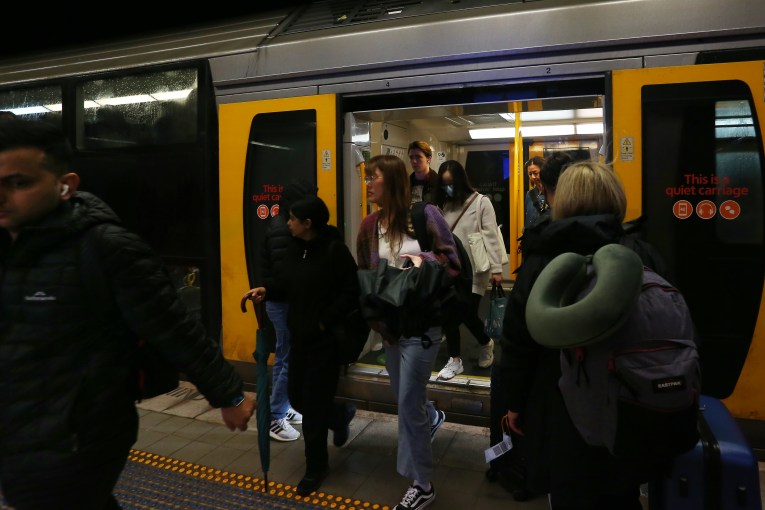Why parents and teachers are going off homework


The school holidays won’t be all about lazy days and sleep-ins for many Australian families.
Some will be cracking out the books to tackle holiday homework, with students as young as five expected to study during the break.
But an international backlash against homework is seeing some primary schools ban it, with research showing it has no value for younger school students. One academic has even warned that too much homework could breed a generation of “overweight couch potatoes”.
A new school to open in the UK in September will veto all homework in favour of giving families quality time together. French president Francois Hollande is calling for a national end to homework, which he believes gives an unfair advantage to those students whose parents help them out.
• Public vs private school: why it doesn’t matter
• Is parenting too hard? Pay someone else to do it
• How much do boomerang kids REALLY cost?
Flinders University lecturer in education, Barbara Neilsen said she feels “very sorry” for families faced with homework tasks these holidays.
“Research into … homework … shows that children need to have reached at least junior secondary school for them to be able to learn unaided through … homework tasks,” she said.
Homework had most value at senior secondary and tertiary level she said.
‘Waste of time’
In his book, The Homework Myth (Da Capo Press Inc) the US educator Alfie Kohn writes that “homework provides absolutely no academic benefits for younger students” and is simply the “modern cod liver oil”, which causes stress, conflict, exhaustion and frustration within families.
Barbara Neilsen says children should spend free time with their parents, socialising or playing.
It’s utter nonsense that my six-year-old comes home with pages and pages of boring worksheets
“During your childhood you develop social skills, join sporting clubs and make friends,” she said in a recent interview. “But if (students’) entire waking moments are spent inside at school and then inside doing homework, we will breed overweight couch potatoes.”
Six-year-old Kasey Darlinson of Sydney would much rather be playing these holidays, but she has to spend several hours learning a lengthy Japanese song, while her 11-year-old brother, Blake, will need his parents’ help to complete a school photographic project.

Aleesha Darlinson and her kids (L-R) Kasey, Blake and Riley. Photo: Supplied
“They need time to be kids, to relax and play and switch off,” their mum Aleesah Darlinson said. “(They) get enough homework during the term, and holidays should be a time for them to have a break.”
She said even during term time homework could be stressful for the whole family with her three children rarely inspired to do the work and needing constant supervision.
No benefit for the young
In the book, Reforming Homework (Palgrave Macmillan) by Australian academics Richard Walker and Mike Horsley, the authors found that not only is homework of little value to primary school students, but that young children were regularly given too much.
It’s the kind of research that led Methodist Ladies College in Perth to redesign its junior school homework policy five years ago. Now MLC’s only mandated after-school activity is 30 minutes of play each day, preferably outdoors.
MLC Dean Mike Brown says homework can rob children of their childhood and create a negative interaction between parents and children, and yet is often due to parental pressure that schools set homework in junior years.
“Kids today have enough stresses in their little lives without us adding to it,” Mr Brown said. Yet some parents saw it as “a badge of honour” when their child completed several hours of homework.
“The research clearly shows there is little to no value in homework for primary school children, so we created a program called Learning Beyond the Classroom which recognises other activities the girls might be involved in, such as sport or music and acknowledged that these were important learning activities,” Mr Brown said.
“We put the power into our girls’ hands to do some kind of learning every night after school – and that could include reading or an activity they already do rather than us setting more work for them,” he said.
Go outside, run around
 It’s a practice Melbourne mother Rose Kenndey would like to see it encouraged.
It’s a practice Melbourne mother Rose Kenndey would like to see it encouraged.
“It’s utter nonsense that my six-year-old comes home with pages and pages of boring worksheets,” she said.
“I have to help him each night and that eats into our family time and causes conflict, he doesn’t want to do the work and neither do I. I don’t understand why I have to act as a surrogate teacher.”
But a Melbourne prep grade teacher, who preferred not to be named, said it was important that young students consolidated new skills during the holidays.
She said the homework was designed to prevent regression rather than create stress or burden families.
“We don’t want to overload kids or parents by just giving them work for the sake of it, but with some children who may already be struggling to keep up with expected levels, two weeks without practicing their reading or numbers could see them falling further behind,” she said.
Michelle Hamer is a Melbourne-based journalist and author. Her books are available here and here.








